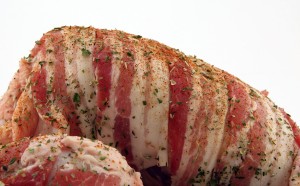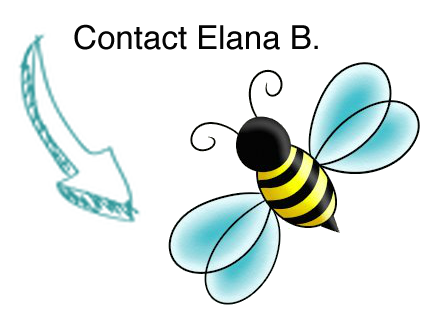By Elana B. Multi award-winning writer, advertiser, speaker and internationally published author
Like most people, you probably think of cholesterol and picture fatty fried foods and heart trouble. Yes, elevated blood cholesterol can be bad news. In December 2015, the CDC listed that 1 in 8 American’s have high cholesterol. That’s significant. You might be thinking, I pretty much know everything I need to: keep your good cholesterol (HDL) above 35mg (or around 40/50mg/dL) and watch the bad cholesterol (LDL) by keeping it below 100 mg/dL). But this waxy substance that can build up in your arteries can be tricky. Even if you believe that you are living a healthy life style and not eating too many foods that can raise your bad cholesterol or lower your good cholesterol, sometimes genetics are involved. Did you know that cholesterol can be so high that it shows up in fatty deposits in the skin? You might be thinking, “So keep your cholesterol low and you are okay.” Wrong again. Some cholesterol can be too low. So what is the best plan of action? Read the story of the good, the bad, and the ugly of cholesterol.
What Is Cholesterol?
Cholesterol is a form of fat found in the blood and all cells of the body. It is critically important in helping form cell membranes, steroid hormones and bile acid, but cholesterol can also build up in the inner walls of the arteries that supply blood to the heart. Those deposits contribute to the formation of plaque, which can cause the arteries to narrow, making them less efficient at transporting blood .

Artery Clogging Bacon
Why does this happen?
Cholesterol can’t dissolve in the blood. It must be transported through your bloodstream by carriers called lipoproteins, which got their name because they are made of fat (lipid) and proteins.
The GOOD Cholesterol (HDL)
- HDL cholesterol is considered “good” cholesterol because it helps remove bad (LDL) cholesterol from the arteries.
- Experts believe HDL acts as a scavenger, carrying the bad (LDL) cholesterol away from the arteries and back to the liver, where it is broken down and passed from the body.
- A healthy level of HDL cholesterol may also protect against heart attacks, strokes, and other cardiovascular diseases.
- One-fourth to one-third of blood cholesterol is carried by HDL.

- Artery clogging and hard to process foods, cause plaque to build
The BAD Cholesterol (LDL)
LDL cholesterol is considered the “bad” cholesterol because it contributes to the formation and thickening of plaque that can clog and narrow arteries, making them harder for lipoproteins (fats and proteins) to pass through. This condition is known as atherosclerosis.
It is easy math to deduce what will happen if you have clogged and narrowed your arteries. If a clot forms and blocks a narrowed artery:
- You can have a heart attack, stroke, or any number of health related problems.
- Another condition called peripheral artery disease can develop when plaque buildup narrows an artery supplying blood to the legs.
[adinserter block=”13″]
The UGLY Cholesterol
- Triglycerides
- Hyperlipidemia
- Trans fat
- Genetically inherited cholesterol problems = Familial Hypercholesterolemia
High cholesterol is inevitable for some
If you have skyrocketing cholesterol, it may be partly genetic. High cholesterol runs in some families, so although it might be inevitable that LDL may be in the unhealthy zone, there are still ways to reduce your risk of cholesterol related health problems.
If you are suffering from genetically caused high cholesterol, known as familial hypercholesterolemia, you are not alone. It affects about 1 in 500 people and can cause total cholesterol levels from 300 mg/dL to 600 mg/dL, as well as cause heart attacks and other cardiac and health related problems early in life.
If you are diagnosed with hyperlipidemia, your overall health status and risks will determine your treatment. Making healthy diet choices and increasing exercise are important first steps in lowering your high cholesterol; if needed you may need to be on cholesterol lowering medications or possibly work with a naturopath to reduce your LDL and triglycerides.
For people with high triglycerides, for example, alcohol can be particularly dangerous. But for those with high cholesterol, a daily glass of wine, along with healthy eating and exercise, may help. The important thing to remember is that one-fifth of your overall cholesterol is made up triglycerides and it is a part of the problem, so keeping that number below (<150 mg/dL) will help.
What is a normal, healthy lipid (fats) levels?
HDL (good cholesterol)>40mg/dL in men and >50 in women
LDL (bad cholesterol) <100mg/dL
Triglycerides<150mg/dL
Total Cholesterol <200 mg/dL
Here are 10 tips on how to manage your risk of high cholesterol
- Read food labels. Choose foods with low cholesterol and saturated trans fat.
- Limit your intake of red meat and dairy products made with whole milk to reduce your saturated and trans fat.
- Choose skim milk or low-fat dairy products.
- Increase the amount of healthy fiber you eat. A diet that is high in fiber can help lower cholesterol levels. Try and get fiber in garbanzo beans (chick peas), whole grains and plant based foods.
- Limit fried food.
- Use healthy oils in cooking, such as coconut oil.
- Exercise and drink lots of water.
- Eat a healthy diet.
- Check your family history of high cholesterol. Sometimes high cholesterol is a matter of genetics. Regardless of this, through diet and exercise you can greatly reduce the negative impact of bad cholesterol and improve your good cholesterol.
- Get regular check-ups with your primary care physician and make sure your cholesterol is checked.
Consult your doctor before using any health treatment, plan, or activity — including herbal supplements and natural remedies. Also, tell your doctor if you have a serious medical condition or are taking any medications. The information presented here is for educational purposes only and is in no way intended as substitute for medical counseling.
About the author: Elana B. is a multi award-winning writer, speaker, and internationally published author. As a writer and ghostwriter she has written hundreds of stories from shorts to books to screenplays. As a healthcare enthusiast she has studied nutrition, health and wellness.
A gifted storyteller, Elana B.’s new children’s series, Too Terribly Busy and the “Too Terribly” Series of books, teach in a fun, creative way some of the most important lessons in life. Through this entertaining series of books, children will learn morals, manners, how important it is to achieve goals, as well as conflict resolution. Sneak peek of the first story in the new series: TooTerriblyBusy-SP1.
More from Elana B. and other helpful articles:
Need Help Relaxing? How Endorphins Help Us
8 Benefits of Regular Exercise
Overwhelmed – 7 Things You Can Do to Calm Down
30 Minutes of Physical Activity







